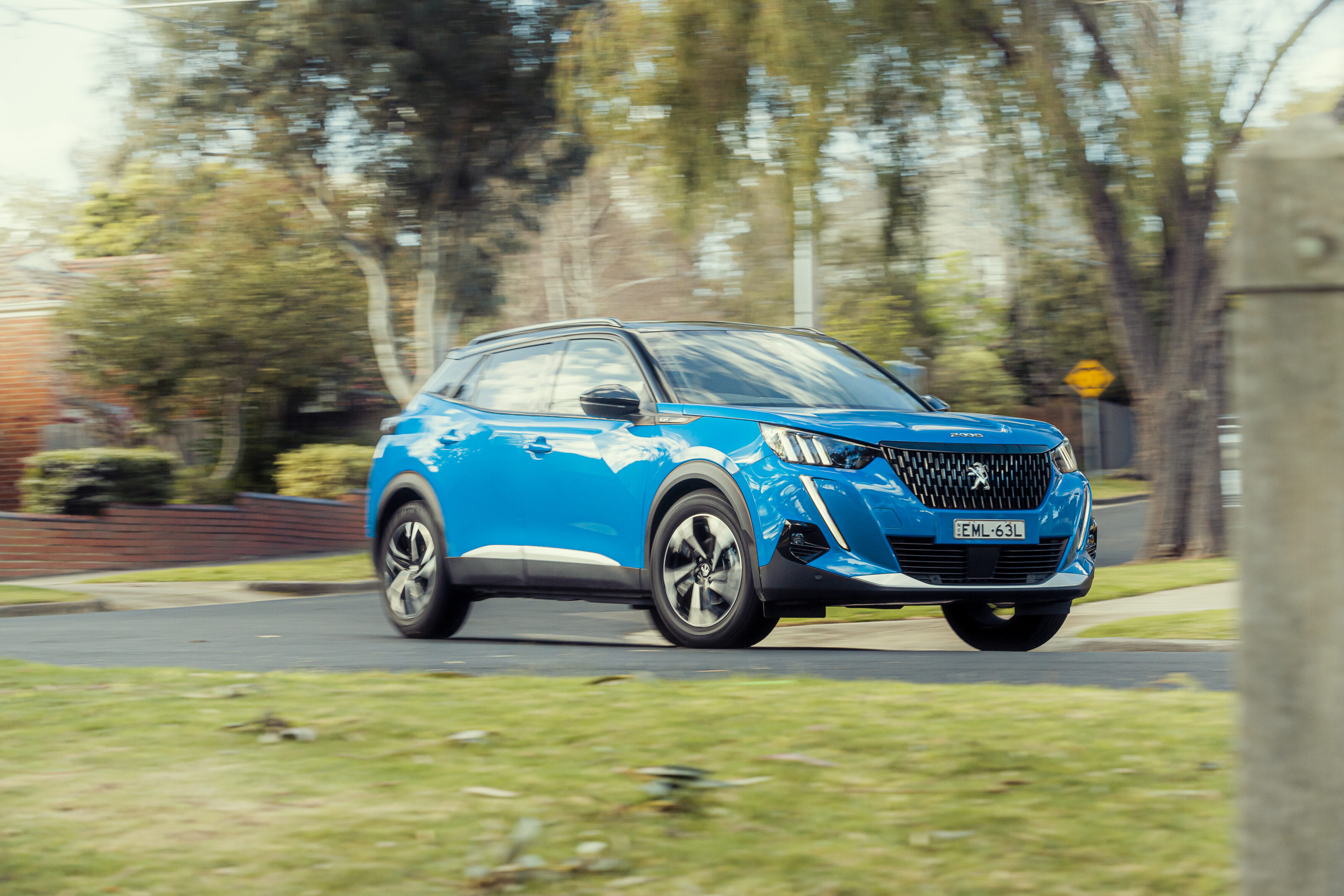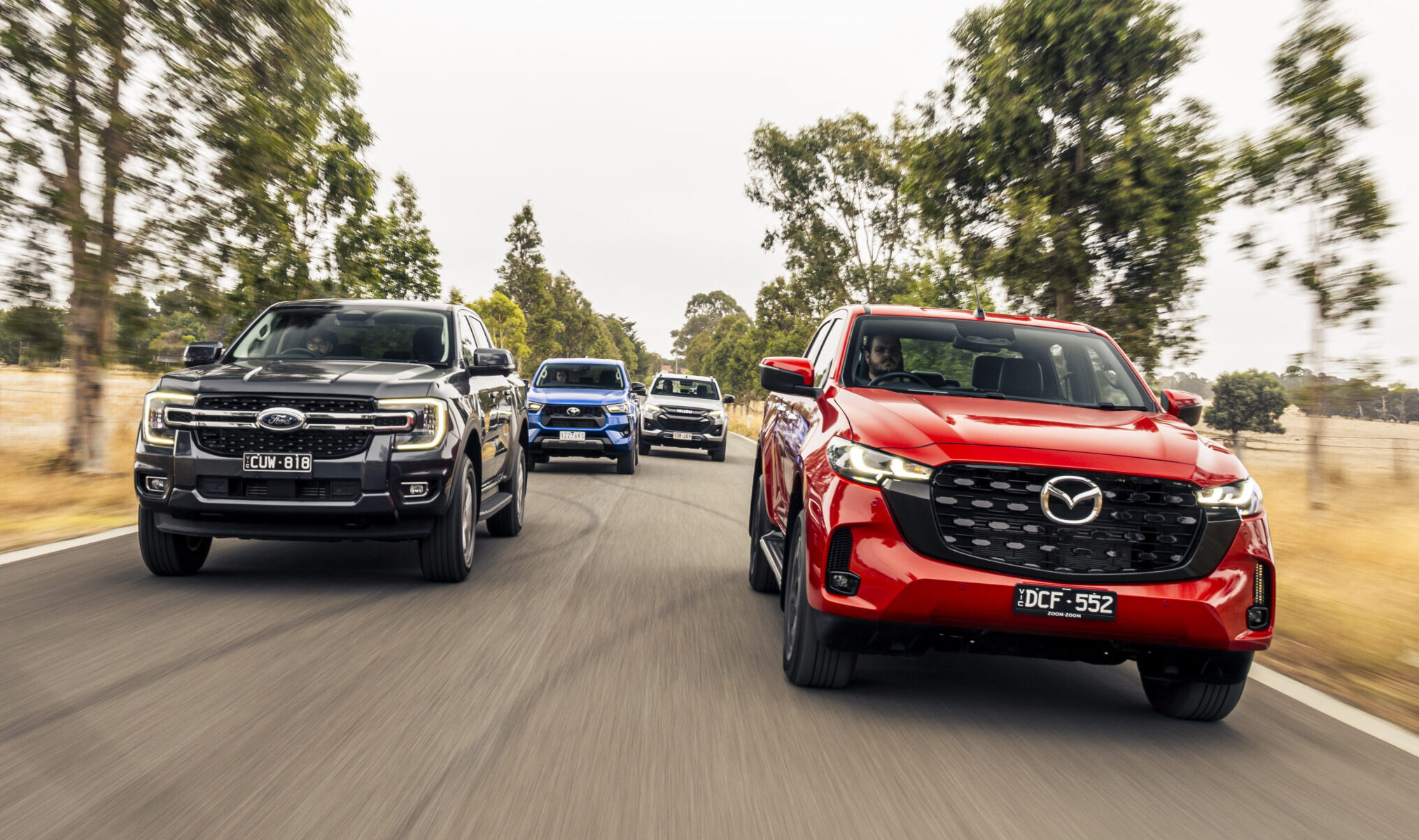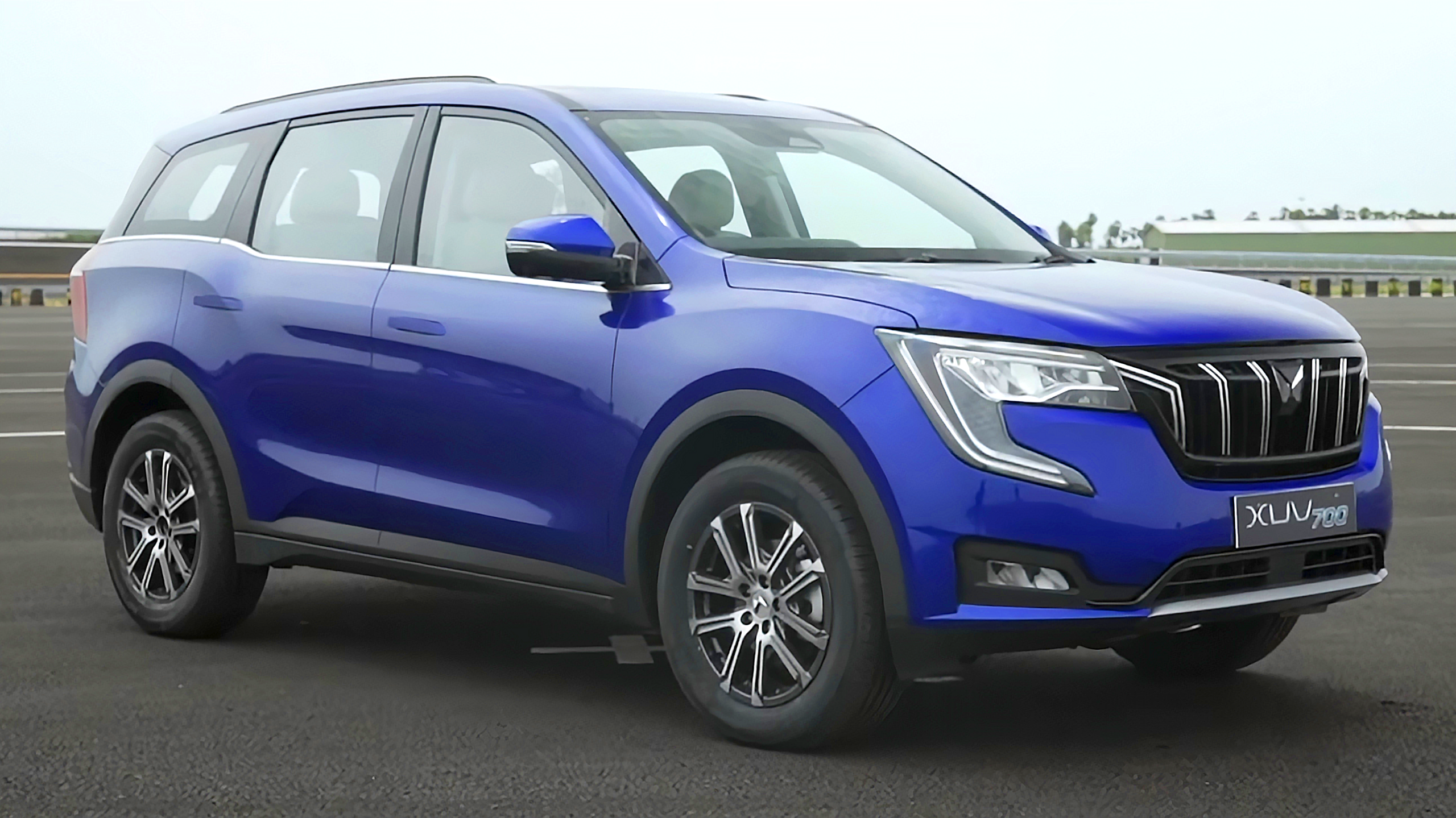Score breakdown
Things we like
- Daring design, inside and out
- Characterful engine
- Impressive space
Not so much
- Ergonomics an acquired taste
- Could use a little more grunt
- Plenty of rivals
If you look around at the small SUV offerings and find the view a little bland, then the Peugeot 2008 GT could be the crossover for you.
It’s a new variant at $38,990 before on-road costs, slotting into the middle of the range between the $34,990 Allure and $43,990 GT Sport. Like its siblings, the 2008 is deliberately different and isn’t intended to be a volume offering.
Peugeot boasts the 2008 is its second-most popular model but with 364 sales so far in 2021 (to the end of August) only the Suzuki S-Cross has sold fewer in the small SUV category. Combine this with its price, which sits squarely in the gap between the mainstream and premium offerings, and any discussion of potential competitors is rendered almost irrelevant.
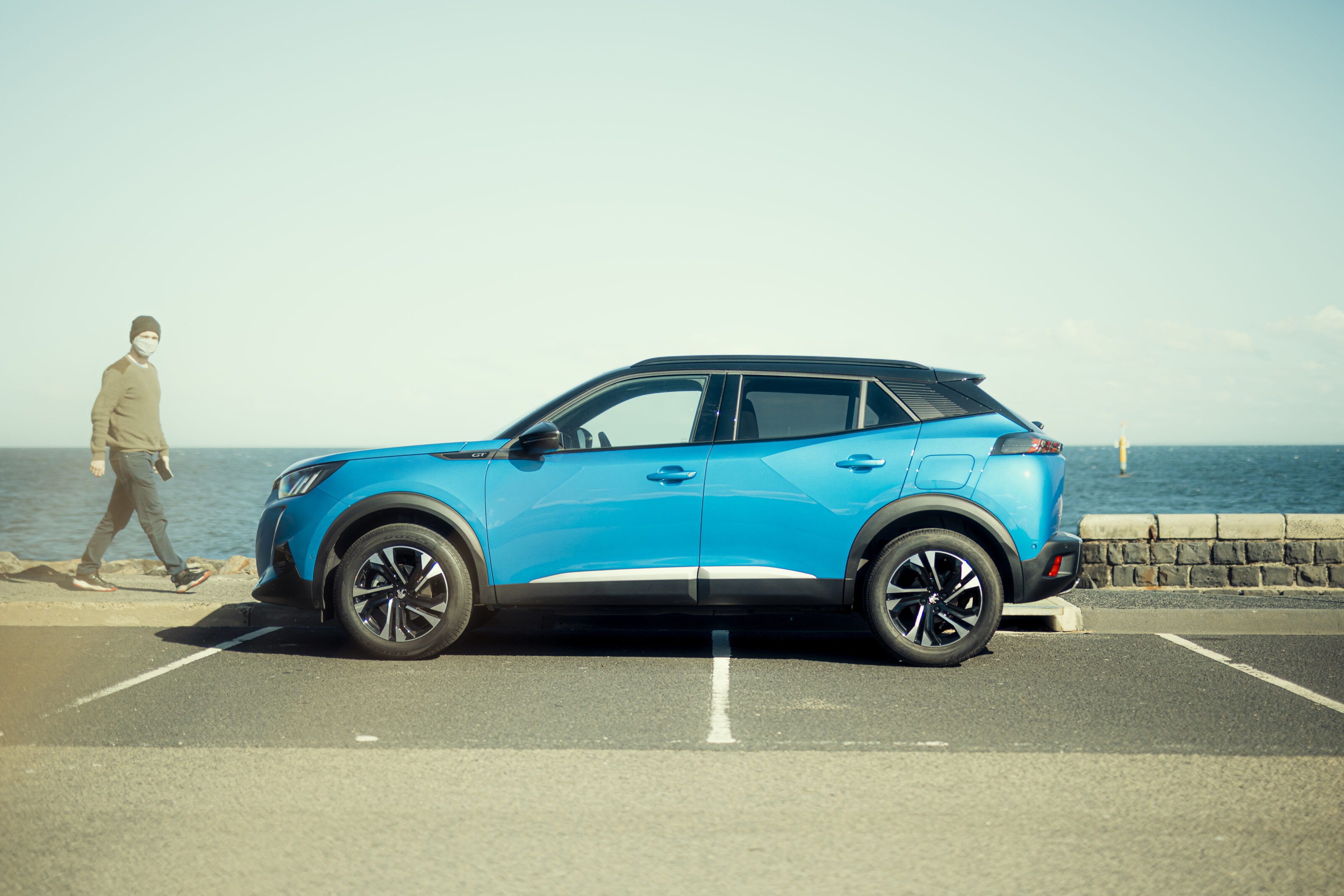
Inside and out the 2008 is different and as a result I suspect you’ll either want to drive nothing else or anything else, so let’s take a closer look at its make up.
Its daring design works to my eyes, especially in a strong colour like this test car’s Vertigo Blue, one of three premium paint options that cost an extra $1050. Three metallic colours are also available for $690 but even the standard colour is Orange Fusion.
Combine this with the contrasting black roof and mirrors, slashing LED daytime running lights, ‘tri-claw’ LED headlights and taillights and the 2008 GT is about as striking as it’s possible to make a small five-door SUV without turning it into a Citroen Cactus.
Inside and out the 2008 is different and I suspect you’ll either want to drive nothing else or anything else, so let’s take a closer look at its make up.
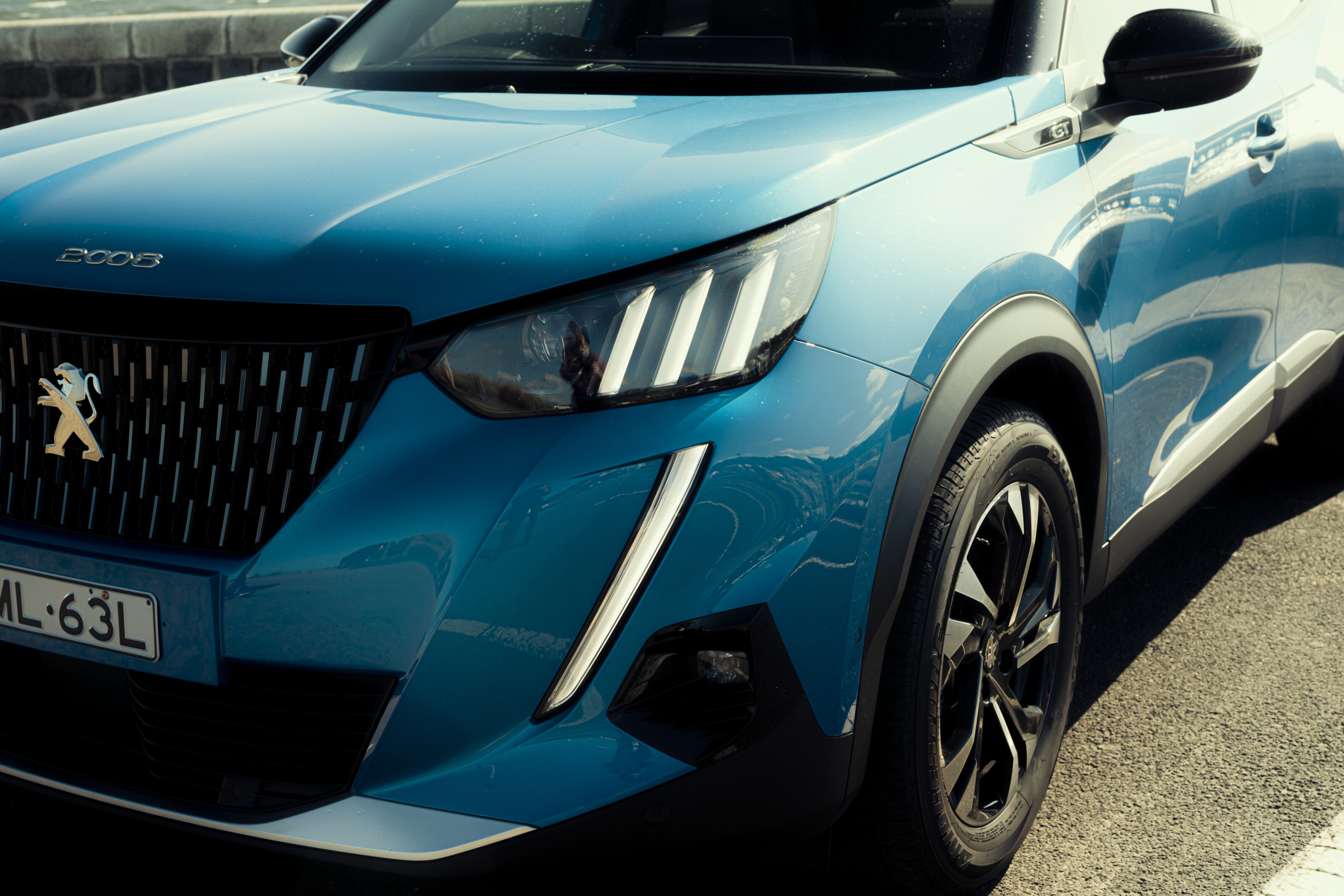
The quirkiness continues inside. For almost a decade now Peugeot has had a unique approach to seating the driver in particular. In most cars, the wheel is mounted so the gauges are visible between the boss and the top of the rim, but Peugeot situates its instrument cluster to be visible above the steering wheel.
This forces the wheel into your lap, which isn’t my preferred location but with familiarity, it fades from thought. The wheel itself is almost octagonal and very small in diameter, which effectively speeds up the ratio of the otherwise quite slow steering, reducing the amount of low-speed twirling required.
The digital cluster itself is very interesting, with ‘floating buttress’ surrounds and a number of 3D-effect displays, though I found the ‘minimal’ setting, which eliminates the 3D graphics, easiest to read. A 10.0-inch touchscreen handles infotainment duties, including smartphone mirroring, native sat-nav, digital radio and controls for the heating and air-conditioning.
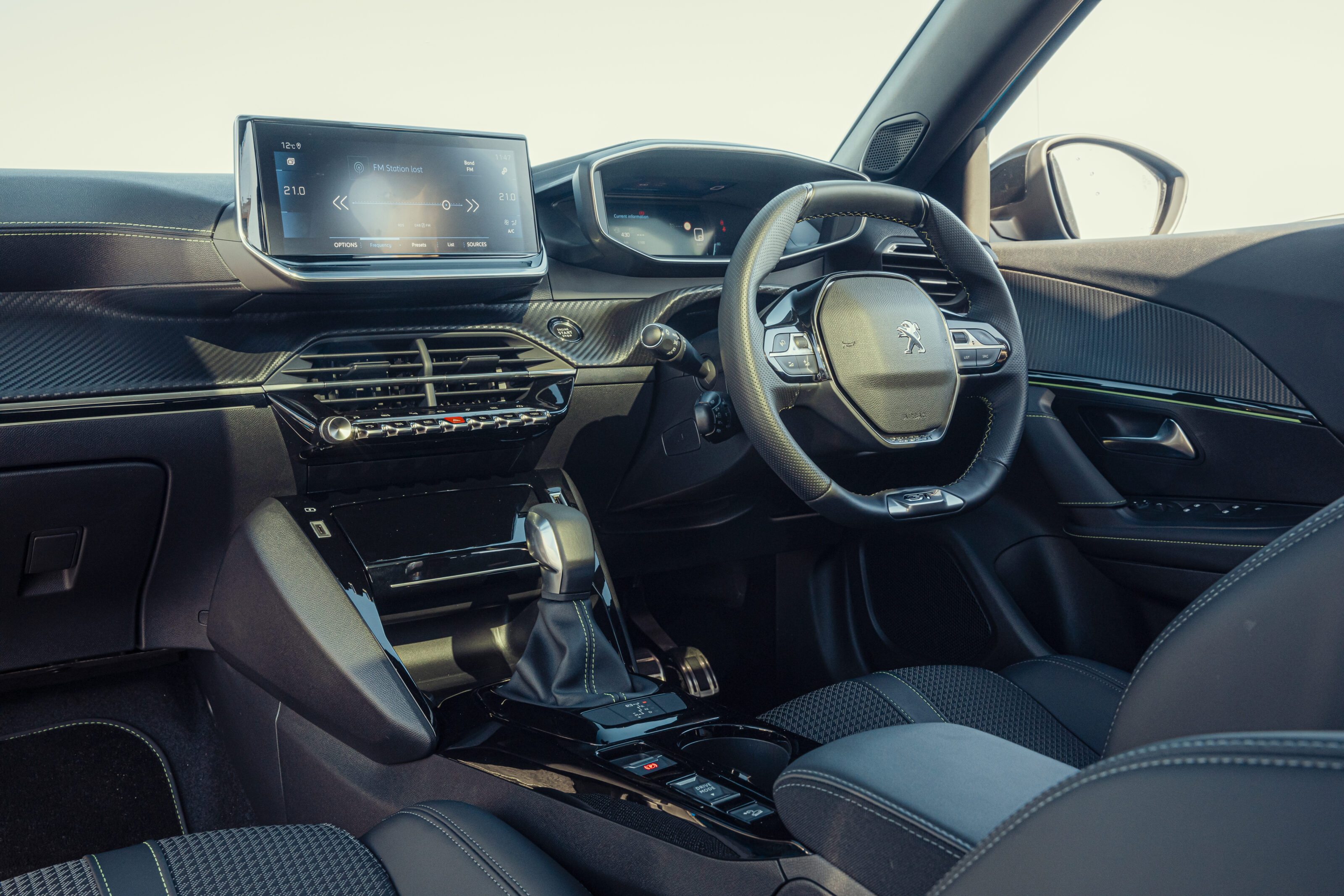
Mounted below the centre vents are two rows of shortcut keys, which are helpful in quickly accessing touchscreen functions. Those on the front row are quite satisfying to use – my wife likened them to those you’d find on an old cassette player – while the back row of keys are haptic. Below this is a cubby hole for wireless phone charging with a door to keep it flying around, but the charging itself is quite slow and a VW-style ‘don’t forget your phone’ reminder would be handy as it’s easy to leave it behind – out of sight, out of mind.
In general, the interior is a bit like sitting in a running shoe. It’s not difficult to find hard, scratchy plastics, but there’s also plenty of cool materials like strips of leather, contrasting bright green stitching, carbon effect trim that sweeps around from the door cards to the dash and heavily bolstered, very supportive seats. Nappa leather seats with electric adjustment, heating and massage function are available for an extra $2690.

Out back there’s ample space for my 180cm frame, with plenty of leg and foot room, as well as a pair of USB-A ports, but no air vents or centre armrest, which is perhaps a bit mean when you’re nudging $40K before on-roads.
While on the topic of negatives, there are a few ergonomic oddities with the 2008 that might seem minor but irked me every time I used the car. The starter button requires quite a long press to fire the engine – merely tap it and nothing happens; the Bluetooth re-connects automatically but has to be selected every time rather than automatically starting playback; and then there are the steering wheel controls.
On the left there is a scroll wheel that one would assume is volume control, but all it does is cycle through the instrument cluster modes. Below that there are a pair of buttons for volume control, but then the other audio controls – to adjust source or tracks – are on the right-hand side below the phone button, which is on the opposite side to the voice control button. The cruise controls are then hidden by the wheel spoke. It just doesn’t feel very well thought out.

There are positives. The proximity locking/unlocking feature is handy and the boot’s a good size at 405L, which increases to 1467L with the 60:40 split rear seats folded. There’s also a false floor to the boot so you can load taller items in, though the tiedown points are located underneath the false floor which is a little odd.
It also scores a decent level of kit: AEB with low light pedestrian and cyclist detection, speed limit recognition, lane keep assist, driver attention alert, blind-spot monitoring, 180-degree camera system, single-touch electric windows all round and parking sensors at both ends, though adaptive cruise control, lane position assist and park assist are limited to the top-spec GT Sport.
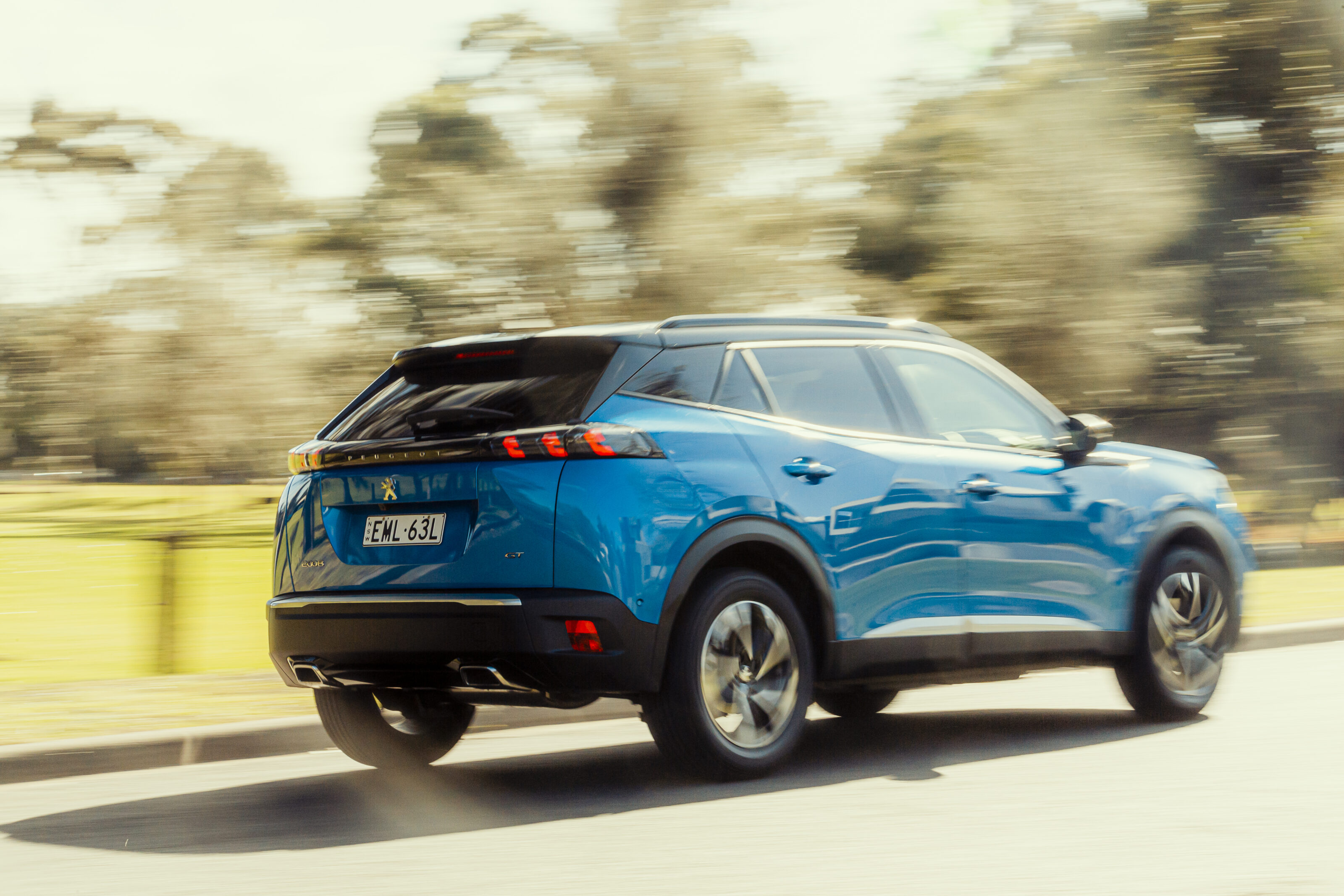
On the road the 2008 GT acquits itself well, the driving experience eliciting few real complaints without any true standout qualities. That said, the ride is a good balance between comfort and body control, with sudden bumps being felt a little sharply but in general, it’s unobtrusive.
As mentioned previously the slow steering is partly offset by the small steering wheel and it’s light enough to be of no issue. Presumably, there’s quite a lot of steering lock, too, as the turning circle is a handily tight 10.4m, and though a little more feedback would be appreciated at higher speeds, but that’s no deal-breaker.
On the road the 2008 GT acquits itself well, the driving experience eliciting few real complaints without any true standout qualities.
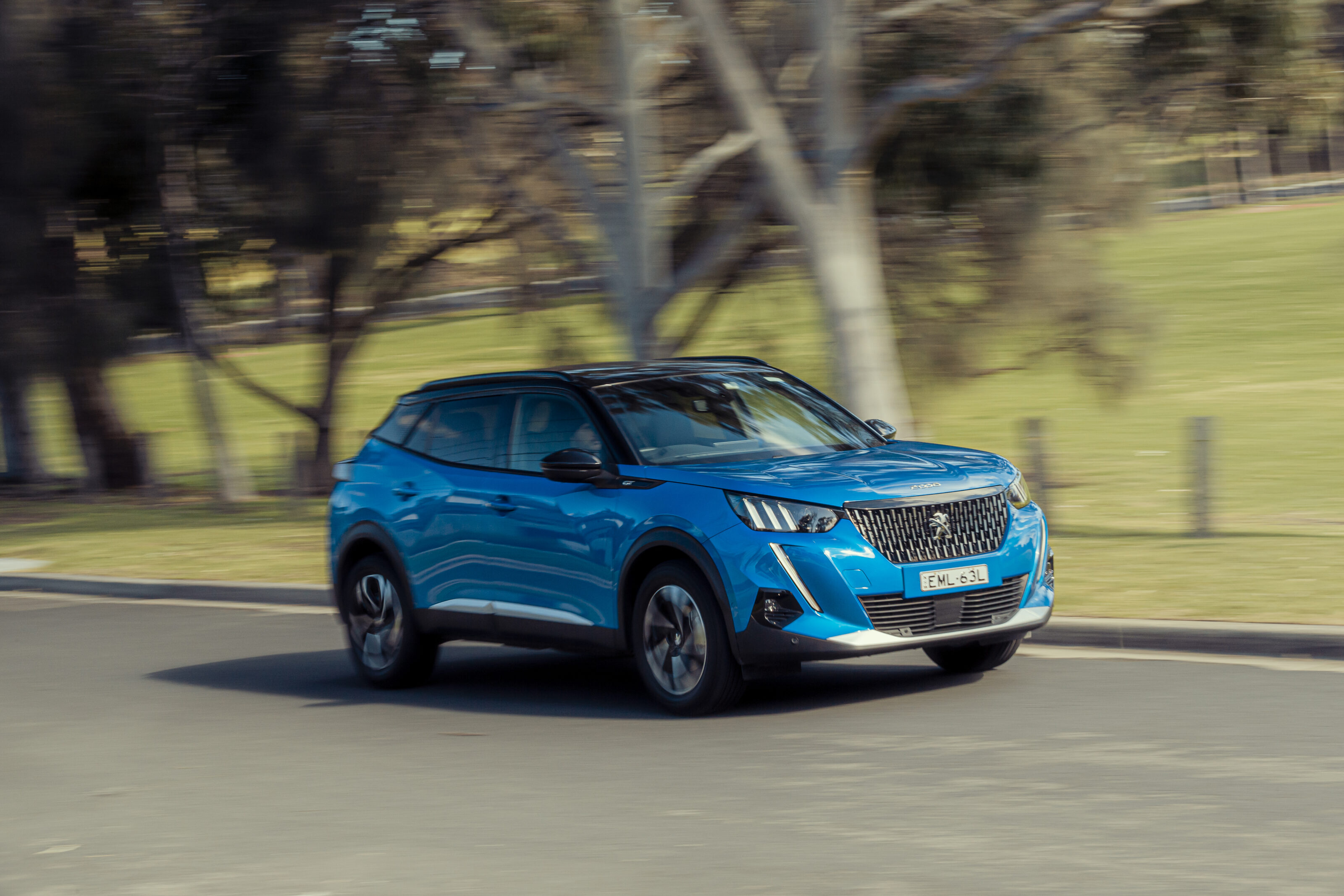
Under the bonnet is a 1.2-litre turbocharged three-cylinder that punches above its size, aided by the 2008’s relatively lithe 1247kg kerb weight. Its 96kW of power is underwhelming – the top-spec GT Sport scores the same engine in a higher state of tune with 114kW – but a strong 230Nm of torque from just 1750rpm allows it to keep up with traffic with little fuss.
The relative paucity of power becomes apparent when you ask for more by depressing the long-travel throttle pedal only to find that the rate of acceleration barely increases. Weirdly, the front-drive 2008 GT offers sand, mud and snow modes as part of its ‘Advanced Grip Control’ as well as a hill descent mode like it’s some sort of Land Rover, yet not a Sport mode that livens up that throttle response.
Being a three-pot means an interesting and characterful thrum is emitted at higher rpm but exploring the upper reaches won’t help you achieve the 6.5L/100km combined fuel consumption claim. My notes for the gearbox read ‘dual-clutch?’ due to the occasional low-speed jerk that suggests the six-speed automatic could be a bit smoother.
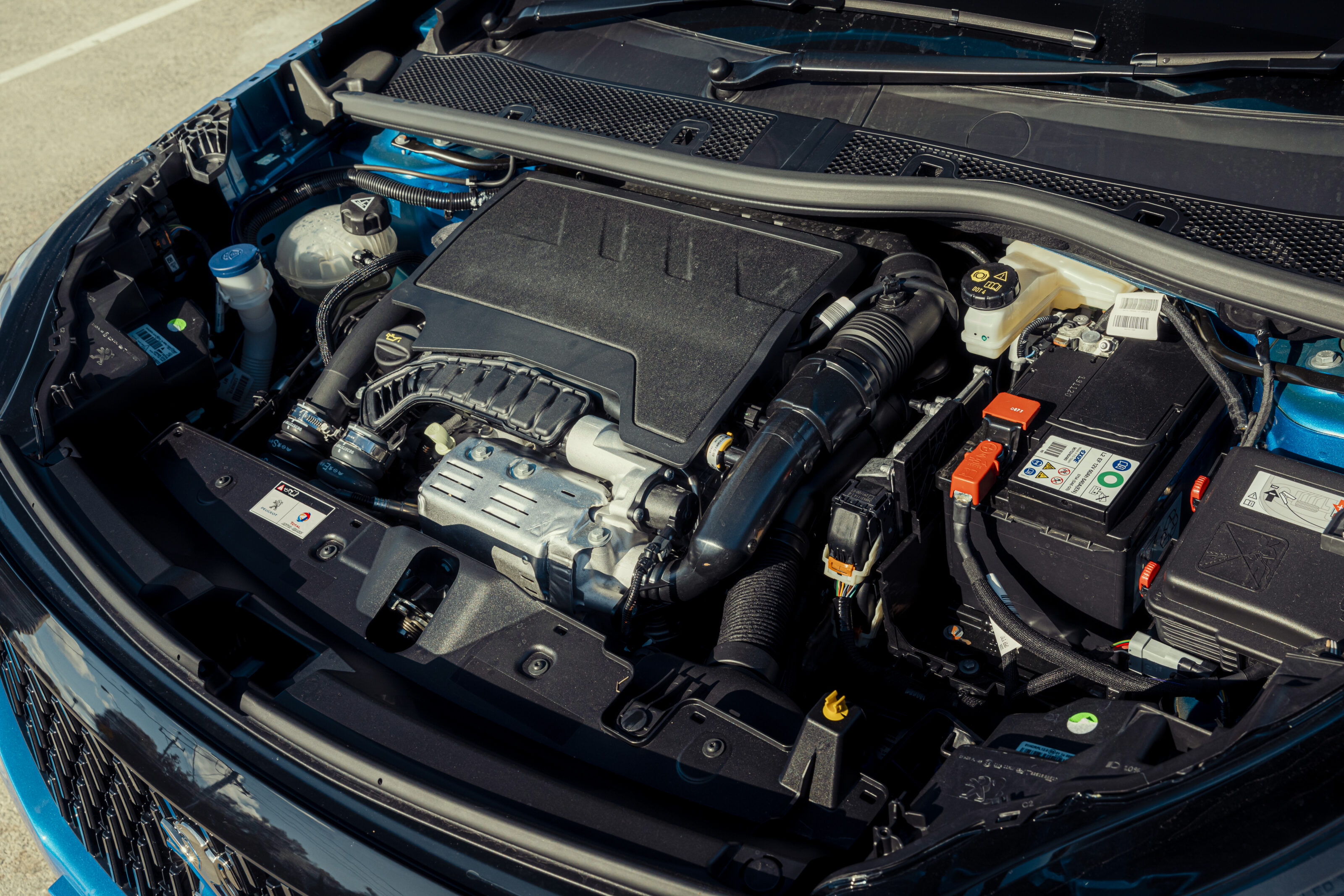
All Peugeots now come with a five-year/unlimited-kilometre warranty, five-year roadside assistance program and five-year service price promise, though Peugeot’s website doesn’t currently list pricing for the latest model 2008.
The 2008 GT sits in a fiercely competitive segment, encircled by the Hyundai Kona, Kia Seltos, Mazda CX-30 and Volkswagen T-Roc below and Audi Q2, BMW X1 and Volvo XC40 above. To be brutally honest, it’s difficult to make a rational case for the Peugeot in the face of such stiff opposition, but to attempt to do so is somewhat missing the point.
I suspect the Peugeot’s flashy design and quirky interior will either ensnare or alienate buyers to the point they’ll either want nothing else or anything else. Personally I think the exterior is great but while the interior is ‘different’ that doesn’t necessarily translate to ‘better’; you get used to the driving position but do I prefer it to the traditional type? No.
Nevertheless, if you want something different the 2008 GT is worth checking out, but include the Skoda Karoq and Renault Captur while you’re at it.
2021 Peugeot 2008 GT specifications
| Body | 5-door, 5-seat SUV |
|---|---|
| Drive | front-wheel |
| Engine | 1199cc inilne-3cyl, DOHC, 12v, turbo |
| Power | 96kW @ 5500rpm |
| Torque | u00a0230Nm @ 1750rpm |
| 0-100km/h | 9.3sec (claimed) |
| Fuel consumption | 6.5L/100km (combined/claimed) |
| Top speed | 199km/h |
| Weight | 1247kg |
| Power/weight | 77kW/tonne |
| Transmission | 6-speed automatic |
| Suspension | struts, coil springs, anti-roll bar (f); torsion beam, coil springs, anti-roll bar (r) |
| L/W/h | 4300/1770/1530mm |
| Wheelbase | 2605mm |
| Boot volume | 405/1467L (rear seats up/down) |
| Tracks | 1540/1550mm (f/r) |
| Steering | electrically assisted rack-and-pinion |
| Brakes | 283mm ventilated discs, single-piston calipers (f); 249mm solid discs, single-piston calipers (r) |
| Wheels | 17 x 6.5-inch (f/r) |
| Tyres | 215/60 R17 (f/r) |
| Price | $38,990 + ORC |
Score breakdown
Things we like
- Daring design, inside and out
- Characterful engine
- Impressive space
Not so much
- Ergonomics an acquired taste
- Could use a little more grunt
- Plenty of rivals


